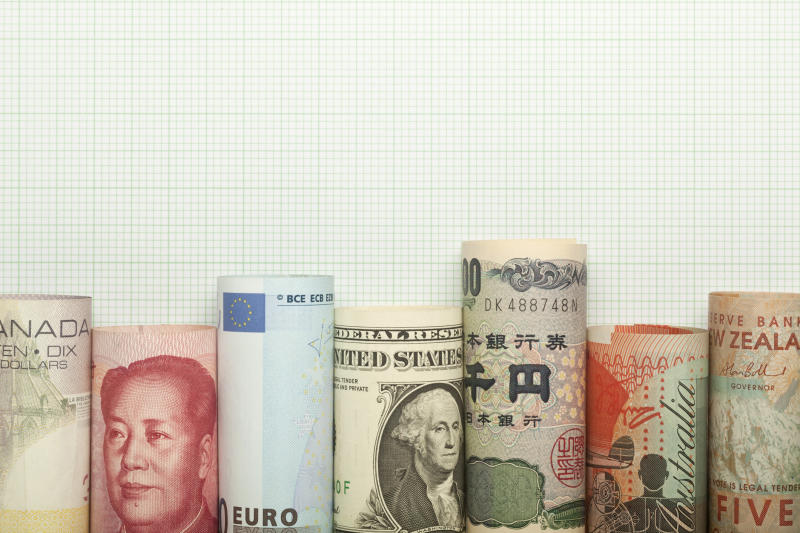
Different currencies [Courtesy]
Banks have recorded increased foreign exchange (forex) income in the first nine months to September 2021, a period in which the Shilling has been on a free fall.
Three of the four banks that have so far released their financial results for the third quarter of 2021, reaped big from a weak Shilling. This is even as some sectors of the economy were devastated by the local currency’s poor run.
KCB, Equity Bank and Standard Chartered all recorded a growth in forex income as more Kenyans sought to convert their wealth into dollars.
KCB recorded a 16 per cent rise in total income to Sh79.9 billion, on account of higher interest income — driven by an increase in earning assets and higher non-interest income. This was driven by increased transactional volumes, forex income and lower cost of funding.
The lender’s foreign exchange trading income increased by 40 per cent to Sh4.5 billion in the period under review compared to Sh3.2 billion in the third quarter of 2020.
Forex income for Equity Bank went up by 41 per cent to Sh5.64 billion from Sh4 billion in September last year.
Standard Chartered made Sh2.5 billion in the first nine months of this year from trading foreign currencies, an increase of slightly over a third compared to Sh1.9 billion in the same period last year.
Co-operative Bank’s income from forex trading increased marginally to Sh1.9 billion compared to Sh1.84 billion.
The increased earnings from forex trading come at a time when other firms like Kenya Power have decried the volatile exchange rate with the power distributor announcing that it will be forced to pass on the exchange rate loss to consumers.
Local firms with dollar-denominated loans will also take a hit from the exchange rate fluctuation. Although other lenders were yet to release their results, the trend is likely to replicate itself, given the rush by Kenyans to stash their wealth in dollar accounts.
Data from the Central Bank of Kenya (CBK) showed that super-rich Kenyans had put Sh771 billion in dollar accounts by the end of August 2021 to protect their money as the shilling took a beating.
This was a jump of Sh13 billion from Sh758 billion in July 2021, as the local currency continued its free-fall. This is the highest level of foreign currency deposits since February 2021, when the amount held in dollar accounts touched a high of Sh780 billion.
Sarah Wanga, the head of research at AIB Capital, an investment bank, noted that in times of uncertainty, banks tend to increase their margins on forex trading.
This explains why banks are making a kill. “In times of uncertainty, the margins tend to be higher as banks don’t know where the Shilling is going,” said Wanga.
Foreign currency deposits are likely to rise further, following the weakening of the shilling that yesterday was trading at an average of 112.1 units against the greenback, according to CBK data.
Critics have also noted a parallel forex market where the interbank rate - the rate at which banks buy from each other - is much higher than the one reflected on banks’ websites.
Globally, the US dollar has been gaining significant ground against other currencies, with some analysts noting the build-up of the dollar accounts as a hedging mechanism.
Since the outbreak of Covid-19, which devastated financial markets in frontier countries such as Kenya, investors, particularly wealthy ones, have converted their cash into dollars as a hedge against exchange rate volatility.
On March 12, a day before the country recorded its first case of the viral disease, the local currency was trading at 102.47 units against the dollar. Since then, the shilling has been in a free-fall due to a combination of factors, including poor export and tourism earnings.
To shield themselves against exchange rate volatility, banks have also been taking up lots of long-term dollar-denominated loans from development partners.
Equity Bank recently said it had not only diversified geographically in six countries but had also managed a currency mix, with only 56.6 per cent of its cash being held in shillings.
Monitor water pumps remotely via your phone
Tracking and monitoring motor vehicles is not new to Kenyans. Competition to install affordable tracking devices is fierce but essential for fleet managers who receive reports online and track vehicles from the comfort of their desk.https://www.standardmedia.co.ke/business/news/article/2001429907/banks-reap-big-from-forex-trade-as-local-currency-takes-a-beating
2021-11-22 15:05:35Z
CBMiggFodHRwczovL3d3dy5zdGFuZGFyZG1lZGlhLmNvLmtlL2J1c2luZXNzL25ld3MvYXJ0aWNsZS8yMDAxNDI5OTA3L2JhbmtzLXJlYXAtYmlnLWZyb20tZm9yZXgtdHJhZGUtYXMtbG9jYWwtY3VycmVuY3ktdGFrZXMtYS1iZWF0aW5n0gGGAWh0dHBzOi8vd3d3LnN0YW5kYXJkbWVkaWEuY28ua2UvYnVzaW5lc3MvYW1wL25ld3MvYXJ0aWNsZS8yMDAxNDI5OTA3L2JhbmtzLXJlYXAtYmlnLWZyb20tZm9yZXgtdHJhZGUtYXMtbG9jYWwtY3VycmVuY3ktdGFrZXMtYS1iZWF0aW5n
Bagikan Berita Ini














0 Response to "Banks reap big from forex trade as local currency takes a beating - The Standard"
Post a Comment